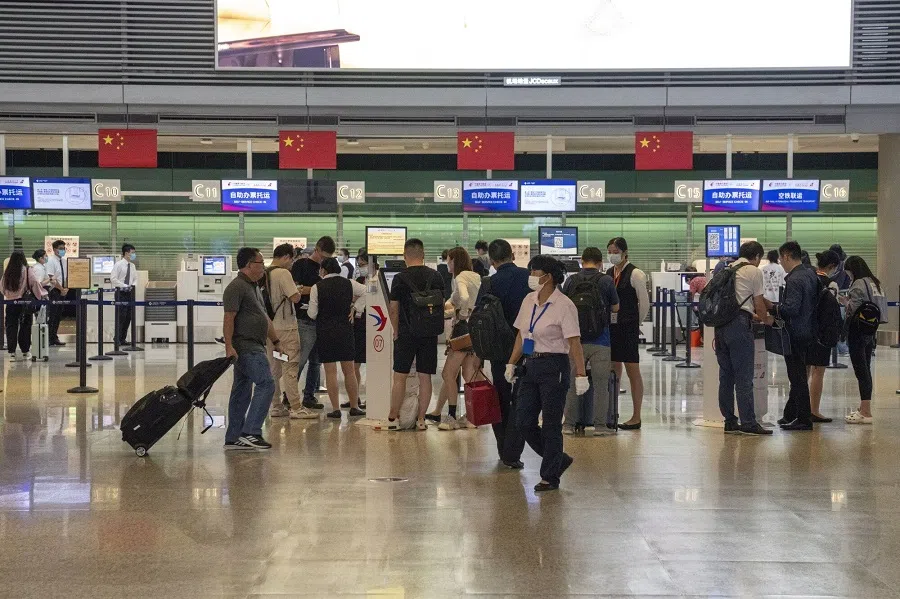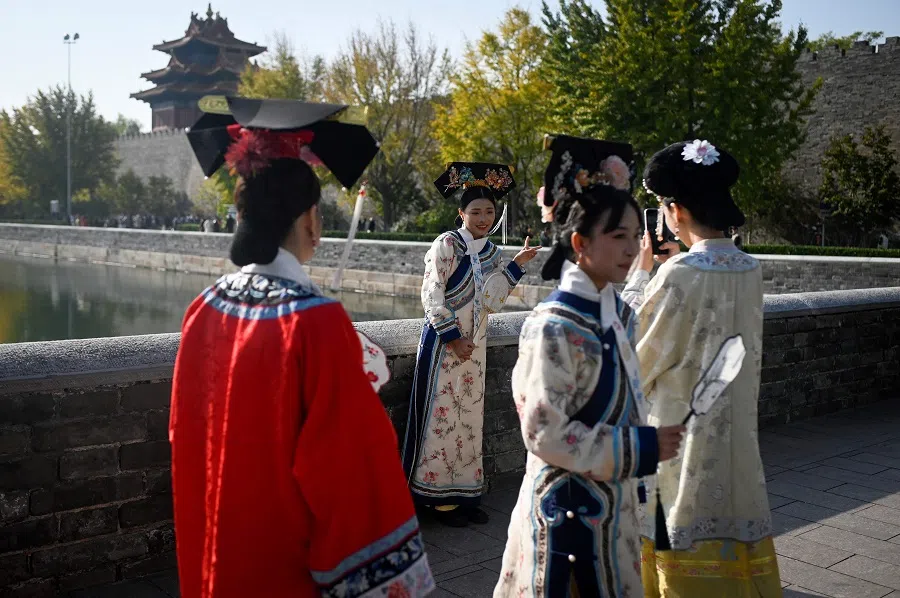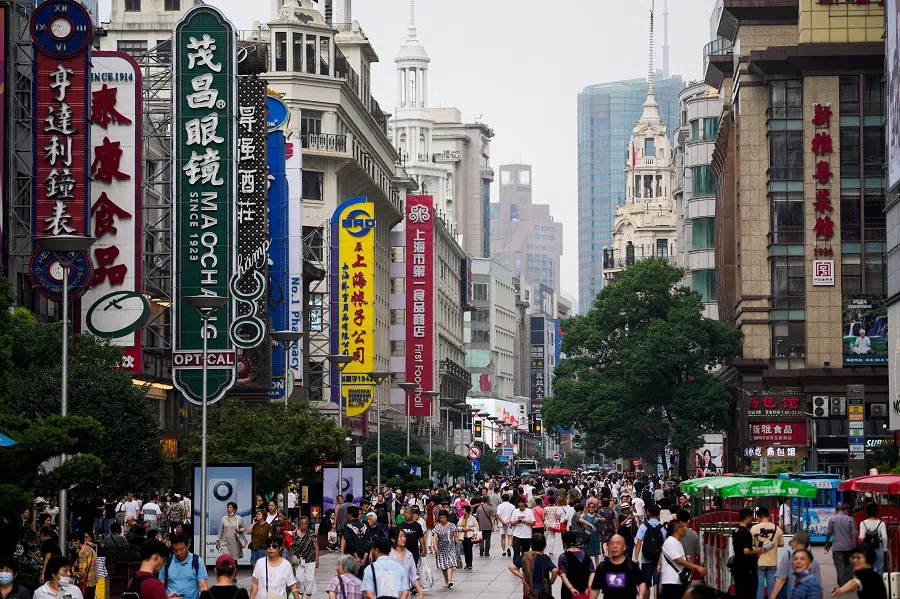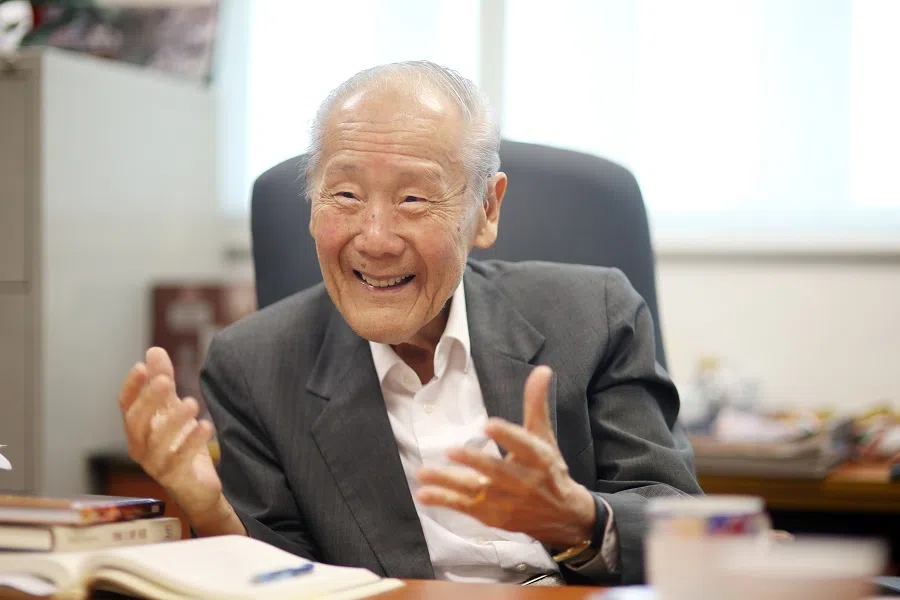Should overseas Chinese be patriotic to the motherland?
Chinese people migrating overseas is a phenomenon that has occurred throughout the ages, but in history these migrants were treated with disdain and even faced execution. US academic Fei-Ling Wang looks at why one decides to leave their native land and even to become a citizen of a foreign country, and how they navigate between their chosen country and that of their ancestors.

The question of whether overseas Chinese are patriotic towards China has, at one time or another, become a talking point for many of us. Proponents firmly believe that overseas Chinese would undoubtedly and indefinitely love their motherland China. Pledging allegiance to the motherland is like taking care of your parents - a universal virtue above all. They believe that "those who left the country would have even more love for it".
However, detractors would criticise them for their addled thinking and lack of information, claiming that only those who have left China for a short period of time would offer such specious remarks. In their view, those who hold such thinking are frequently being exploited by others and would in fact bring harm to overseas Chinese.
The issue of whether overseas Chinese are patriotic, as well as which country they are patriotic to, is indeed a big issue as it touches on people's lives and ethics.
Discrimination of overseas returnees
The Chinese have largely lived in a self-contained Chinese world throughout history, even as they were politically divided.
Drifting away to other areas and even settling down overseas was seen as a helpless move made in despair. Indeed, Confucius's plan for a worst-case scenario was to "sit on a log and drift out to sea" (乘桴浮于海). In the past, nearly all rulers forbade their people from emigrating overseas, in order to save face and maintain stability, and more importantly, to hold onto their source of tax money and military troops.
It took only slightly more than a century for them to transform from people on the run struggling to make a living, to those who seek education and riches by "moving to places with better opportunities".

During the oft-talked-about age of prosperity of the various Chinese empires, leaving the borders without special permission was considered a crime, and those caught violating the rules were often beheaded without trial. It was not until the 1860s, when American diplomatic envoy Anson Burlingame (who later became the Qing Empire's imperial envoy to the US and Europe) convinced the imperial court to allow the people to travel overseas, were the autonomous Chinese traveller spared execution.
Of course, regardless of what the officials say, Chinese people migrating overseas is a longstanding phenomenon. Migrating by land notwithstanding, even migrating by sea carries a long history, with tens of millions of people settled in Nanyang. There was even an independent Chinese colony that settled in modern-day West Kalimantan in Indonesia for over a century.
However, overseas Chinese are no longer classified as anti-establishment troublemakers, or those who are abandoned by their community. It took only slightly more than a century for them to transform from people on the run struggling to make a living, to those who seek education and riches by "moving to places with better opportunities".
Especially after the 1980s, haigui (海龟, lit. sea turtle, a play on the homophone 海归 haigui, referring to Chinese nationals who have returned home after studying overseas) are finally not discriminated against in mainland China, and are seen as equal to their other compatriots - or even a cut above them. It has only affected one or two generations of people, but there is a hint of expediency about the shift in attitude.
Indeed, the recent national "rejuvenation" grand plan, especially arrests made in the name of counter espionage, have left several haigui trembling in fear - although not to the extent of a reversal in the course of the flow of the Yangtze and Yellow Rivers.
... the Chinese who express regret for taking up foreign nationalities and proclaim their "patriotic love for the motherland"... are more often than not those who grouse about not being able to have their cake and eat it too.
Price to pay
The so-called permanent residents who reside overseas are in fact just Chinese sojourners in foreign lands. Ethnic Chinese become citizens of foreign nations by swearing an oath to share weal and woe with their "native" compatriots - that is a true immigrant.

Putting aside any consideration of laws, rights and whatnot, making the switch from resident to citizen could be worthwhile just for the inner peace and sense of legitimacy that stems from having one's home aligned with one's nationality. But it is not all sunshine and rainbows, and there is a price to pay for making such a choice.
One downside is the hassle that emerges when returning to one's native land, because the Chinese government does not recognise dual nationalities. Nonetheless, the majority of Chinese people with foreign nationalities are not bothered by this as there are not many occasions that require them to return to their native land.
Those who frequently travel between China and other foreign countries for personal or professional reasons have spent time carefully considering the decision to take up foreign nationality. The cumbersome process and additional expenses they have to bear as they travel to and from China would most likely have been factored into their decision-making.
Nonetheless, the Chinese who express regret for taking up foreign nationalities and proclaim their "patriotic love for the motherland" - which is music to the ears of some of their Chinese compatriots back home - are more often than not those who grouse about not being able to have their cake and eat it too. They are just putting up a show with their complaining; something that is to be expected and taken with a pinch of salt.
Their patriotism is in fact misordered, whereby they place the country chosen by their ancestors in front of the country chosen by themselves.
Homesickness and nostalgia
It is not uncommon to observe some Chinese with foreign nationalities that strive to self-censure, acting docile towards the motherland, to avoid any unexpected "forbidden entry" when they travel to China. They even go so far as to disparage their newly adopted country of residence.
Their patriotism is in fact misordered, whereby they place the country chosen by their ancestors in front of the country chosen by themselves.

These "patriotic Chinese with foreign nationalities" are either hoodwinked into becoming pompous tools for others, or are hypocrites, playing both sides of the fence and lying to their fellow countrymen back in the motherland.
What the overseas Chinese (especially first-generation immigrants) struggle with even more is perhaps their feelings of homesickness. Writings that reminisce about the motherland easily strike a chord with many; giving back to one's birthplace is often an indisputable prime virtue (though unfortunately, a notion often reduced to mean showing blind support for the government and policies of one's native land).
These feelings of love and concern for one's motherland are entirely understandable. Humans naturally retain feelings of attachment, nostalgia and concern towards their motherland, and are especially caring, sympathetic and supportive towards those who belong to the same culture and ethnicity - even more so during times of crisis.
The love, guidance, support and aid towards China from the overseas Chinese have certainly been a constant force since the 19th century. Their great contributions sometimes even become a key factor directly affecting the fate of China.
Yet at the same time, the people should also be aware that being shaped by emotions of nostalgia to unconditionally defend one's native land, would often morph into a form of false consciousness that carries with it a slant of racism that is easily manipulated and exploited.
Criticisms or even accusations of being unpatriotic or a traitor to one's native land bring about all sorts of actual consequences: from "social death" (being isolated from and unable to face society) to imprisonment, or even worse punishments.
Patriotic towards the right country
Indeed, many Chinese have forgotten that the history of human civilisation is one of migration, of changing your native land; we are all offspring of immigrants from East Africa.
The Chinese, like other ethnicities, understand very well notions such as "mobility is life" and "a rolling stone gathers no moss". They are well aware of what to prioritise between reality and nostalgia, between country of residence and ancestral land...

These Chinese have been influenced by several factors, such as the illusory global perspective that the world has a "sino-barbarian" (华夷) dichotomy, driven by the deeply internalised ideas of a Chinese "grand unification"; an agricultural village social structure under the patriarchy; the firm belief that returning to one's native land with glory is a must; and the traditional national policy that restricts migration.
The migration of the Chinese people for centuries has long proven that sentiments such as "only by strengthening the motherland will overseas Chinese have a good life" and "overseas Chinese would never be integrated into the mainstream of their new countries" are propagandist myths masquerading as "common sense patriotism" - they are as illogical as they are false.
In fact, in the Chinese world, from Bai Juyi to Su Shi, Hu Shih and Wang Gungwu, there has long been a wise view of "I am not born tied to one place", and "Home is where my heart is at peace". These echo the teachings of Western and European wisemen such as Benjamin Franklin, Georges Clemenceau and Thomas Mann.
The Chinese, like other ethnicities, understand very well notions such as "mobility is life" and "a rolling stone gathers no moss". They are well aware of what to prioritise between reality and nostalgia, between country of residence and ancestral land, between duty and emotions, and between one's own country and that of the ancestors. They traverse the globe and prosper everywhere while being patriotic, and towards the right country at that.
I have asked many mainland Chinese who have chosen to live in the relatively underdeveloped sub-Saharan Africa - those that have "run" to other places through legal and illegal means (润, which has the same pronunciation as the English word "run", referring to an exodus from China to other countries). The most common reason is that "there is more freedom, with nobody to control me", followed by "it is easier to make a living", and "the air is cleaner".
Simple, clear and grounded; who says the Chinese are not clever or willing to travel far, and only know how to fight among themselves, put up with hardships and suffer in their native land?
This article was first published in Lianhe Zaobao as "此心安处是吾乡 --正确的海外华人爱国观".

![[Big read] Paying for pleasure: Chinese women indulge in handsome male hosts](https://cassette.sphdigital.com.sg/image/thinkchina/c2cf352c4d2ed7e9531e3525a2bd965a52dc4e85ccc026bc16515baab02389ab)



